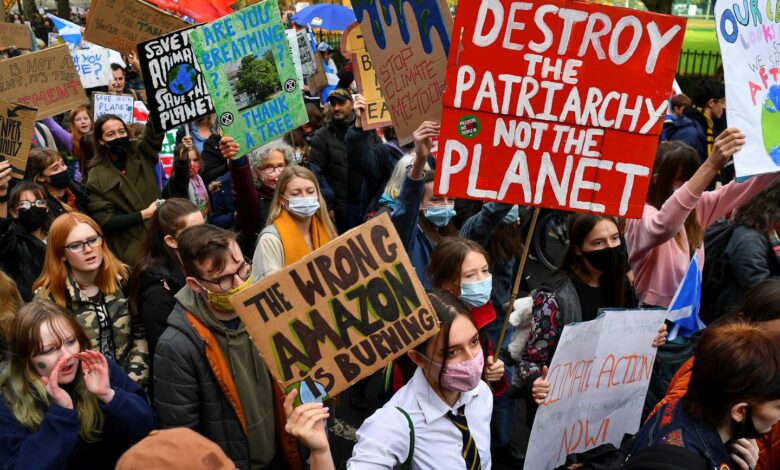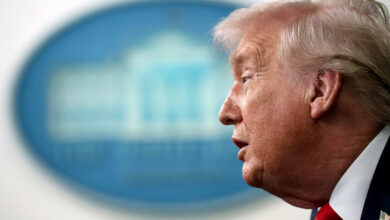
GLASGOW, Scotland, Nov 5 (Reuters) – Thousands of young campaigners marched through the streets of Glasgow on Friday to demand that world leaders at the UN climate conference safeguard their future against climate change.
Inside the COP26 conference venue in Glasgow, Scotland, civil society leaders were taking over discussions at the end of a week of government speeches and pledges, which included promises to phase out coal, slash emissions of the potent greenhouse gas methane and reduce deforestation.
Campaigners and pressure groups have been underwhelmed by the commitments made so far, many of which are voluntary or set deadlines decades away.
Those marching held placards and banners aloft with messages that reflected frustration with what Swedish activist Greta Thunberg described as “blah-blah-blah” coming from years of global climate negotiations.
“You don’t care, but I do!” read one sign, carried by a girl sitting on her father’s shoulders.
Thunberg galvanised young people around the world to take action in “Fridays for Future” school strikes – which began with her standing every week outside the Swedish parliament.
“If you were smarter, I’d be in school” was the message carried by another protester. Many of the marchers took the day off school to take part.
The British president of the two-week conference acknowledged that much more needed to be done to secure more ambitious commitments to stop the world’s slide into climate catastrophe, urging national negotiators to step up the pace.
“It is not possible for a large number of unresolved issues to continue into week 2,” Alok Sharma said in a note published by the United Nations.
“The Earth’s climate is changing!” read one schoolchild’s placard, under a hand-painted picture of a globe on fire. “Why aren’t we?”
ACTION IN CONGRESS
There was at least a prospect of concrete action on Friday from the U.S. House of Representatives, which was due to vote on President Joe Biden’s mammoth “Build Back Better” package, including $555 billion of measures aimed at halving greenhouse gas emissions by 2030 and adapting to climate change. read more
The COP26 talks in Glasgow aim to secure enough national promises to cut greenhouse gas emissions – mainly from fossil fuels – to keep the rise in the average global temperature to 1.5 degrees Celsius, which scientists say is a tipping point towards far more extreme weather events.
To that end, the United Nations wants countries to halve their emissions from 1990 levels by 2030, on their way to net-zero emissions by 2050, meaning the world would release no more climate-warming gases than the amount it is simultaneously recapturing from the atmosphere.




